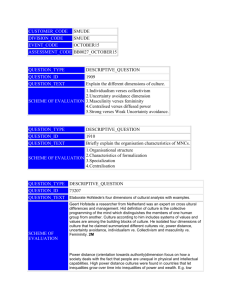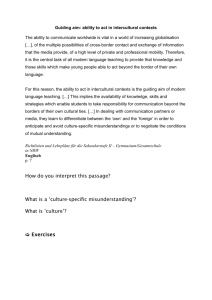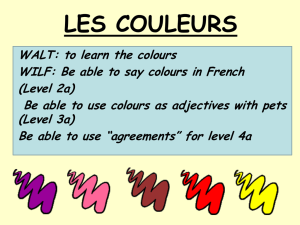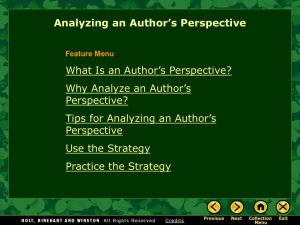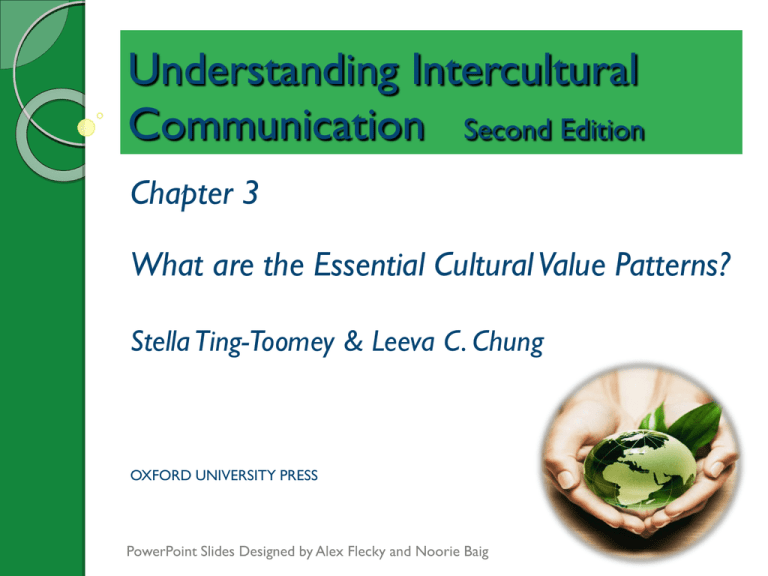
Understanding Intercultural
Communication Second Edition
Chapter 3
What are the Essential Cultural Value Patterns?
Stella Ting-Toomey & Leeva C. Chung
OXFORD UNIVERSITY PRESS
PowerPoint Slides Designed by Alex Flecky and Noorie Baig
TODAY’S MENU
I. Functions of Cultural Values
II. Analyzing Cultural Value Dimensions
III. Additional Value Orientations
IV. Individual Socialization Development
V. Intercultural Reality Check: Do-Ables
I. Functions of Cultural Values
•
•
•
•
•
I. Functions of Cultural Values
A.
B.
C.
D.
E.
Analyzing Cultural Values
Identity Meaning Function
Explanatory Function
Motivational Function
Ingroup–Outgroup Evaluative
Function
Click here to watch how Best Buy demonstrates how it
takes its cultural values and uses them throughout the
different countries in which it operates.
II. Analyzing Cultural Value Dimensions
IDENTITY:
Individualism
Collectivism
POWER:
Small Power
Distance
Large Power
Distance
Weak
UNCERTAINTY: Uncertainty
Avoidance
Strong
Uncertainty
Avoidance
SEX ROLES:
Masculine
Feminine
II. Analyzing Cultural Value Dimensions:
Individualism–Collectivism Value Pattern
Individualistic Cultures Collectivistic Cultures
“I” Identity
“We” Identity
Nuclear family
Extended family
Privacy regulation
Relational harmony
Individual competition
Teamwork
Personal competence
Ingroup emphasis
Direct comm. patterns
Indirect comm. patterns
Independent self
Interdependent self
II. Analyzing Cultural Value Dimensions:
Small–Large Power Distance Value Pattern
Small Power Distance
Emphasize interpersonal
equality
Large Power Distance
Children may contradict
parents
Emphasize status based
difference
Children should obey
parents
Younger people are smart
Older people are wise
Teachers ask for feedback
Teachers lecture
Subordinates expect
consultation
Subordinates expect
guidance
Informal comm. patterns
Formal comm. patterns
Horizontal self
Vertical self
II. Analyzing Cultural Value Dimensions:
Weak-Strong Uncertainty Avoidance Value Pattern
Strong Uncertainty
Weak Uncertainty
Avoidance
Avoidance
Uncertainty is valued
Uncertainty is a threat
Family is dynamic and changing
Reinforce family rules
High mobility in relationships
Low mobility in relationships
Challenges are welcome
Routines are welcome
Encourage risk-taking
Encourage clear procedure
Conflict can be positive
Conflict is negative
High tolerance for ambiguity
Low tolerance for ambiguity
II. Analyzing Cultural Value Dimensions:
Feminine-Masculine Value Pattern
Feminine Cultures
Masculine Cultures
Flexible sex roles
Complementary sex roles
Emphasize nurturance
Emphasize achievement
Both genders take initiative
Males take initiative
Social adjustment is critical
Academic performance is
critical
Work in order to live
Live in order to work
Fluid gender communication
Overlapped gender roles
“Masculine” toughness vs.
“feminine” softness
Clear masculine/feminine
gender roles
II. Analyzing Cultural Value Dimensions:
Media Activities
My Big Fat Greek Wedding film clip:
Connect with the different value dimensions
Japanese Snowboarder: Values
During the 2008 Winter Olympics a Japanese
snowboarder received a large backlash from
his home country after wearing his
country’s uniform “inappropriately.”
Click here to watch video.
The Last Samurai film clip:
Click here to watch this clip about Feminine/ Masculine
Cultures
II. Analyzing Cultural Value Dimensions:
Self-Assessment Discussion
Four-Dimensional Values Inventory (DVI)
What Factors Shape Your Values’ Development?
Increase Your Self-Awareness of Value Dimensions
on Multiple Levels: Cultural/Ethnic, Workplace,
Family, and Personal Self.
Dyadic Discussion: Increase Your Awareness of
Differences and Similarities between SELF and
OTHER. . .
III. Additional Value Orientation Patterns
IV. Individual Socialization Development
A. Independent versus Interdependent
Self-Construal
B. Horizontal versus Vertical SelfConstrual
C. Internal versus External Locus of
Control
V. Intercultural Reality Check: Do-Ables
Flexible intercultural communicators:
Practice the O-D-I-S Method:
O=
Observe verbal and nonverbal
signals attentively.
D=
Describe specific behaviors with a
minimum of distortion.
I=
Generate multiple interpretations
of the unfamiliar behaviors.
S=
Suspend ethnocentric evaluation,
perform open-ended evaluation.
Values Exploration Exercise
“PARABLE” Application Exercise
Individual Decision Ranking
Group Discussion
Group Decision Consensus Ranking
In-Class Writing Assignment
Parting Thoughts…
Only if we understand can we care.
Only if we care will we help.
Only if we help shall they be saved.
~ Jane Goodall


